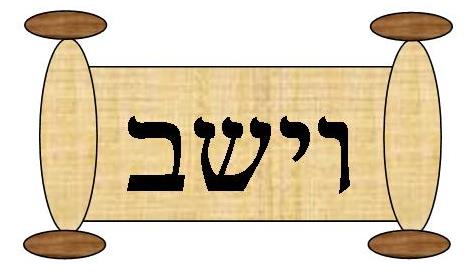
Dec 20, 2019 | Torat Devorah
In this week’s parshah, we see the consequences of jealousy. Joseph’s brothers’ could no longer endure the favoritism that their father displayed towards their younger brother, and plotted to get rid of him in some way. Joseph was thrown into a pit, and later sold to merchants as a slave.
Fully aware that they would have some explaining to do to their father Jacob when they returned without Joseph, the brothers “dipped the coat (Joseph’s coat that was a gift from Jacob) in its (a goat’s) blood” (Genesis 37:31). There are a few questions that need to be answered: 1) Why did the brother’s fabricate an elaborate charade about what transpired with Joseph, and 2) What made Jacob think that Joseph had been devoured by a wild beast? And why did Jacob, speaking about the beast, say both has devoured himand has torn him apart? Besides, the order of what happened should have been reversed!
The Alshekh answers these questions and explains as follows: The brothers had debated amongst themselves how to present Joseph’s absence. Had they claimed never to have seen him, their father would organize search parties, questioning all caravans in the region. He would find out about the Ishmaelites who had traveled to Egypt. If they would say that Joseph had been found dead, Jacob would demand to see his grave. If they would say that they had HEARD about an accident that had befallen him, they would be telling an outright lie. For these reasons, they felt it best to let Jacob form his own opinion on the basis of the faked evidence. Had they presented Joseph’s coat in an undamaged condition, Jacob would have reasoned that Joseph had taken it off, and would have searched for him, thinking him still alive. The brothers could now imply that Joseph’s fate was due to his having slandered them.
Jacob knew for certain that it was Joseph’s coat. Being unaware of any character weakness in Joseph except his tale bearing, he persuaded himself that Joseph had been punished in this cruel manner for his weakness. In the Torah, the warning not to listen to false information is preceded by the line throw it to the dogs in the book of Exodus. Shemot Rabba 31 points out that one who spreads false information deserves to be thrown to the dogs. Upon reflection, Jacob did not think that Joseph had been eaten alive; this seeing that he was made in the image of God and this having been reflected in his face even after having informed on his brothers. Therefore he assumed tarof, toraf – he had first been ripped apart by a free agent, i.e. a human being. Afterwards, an animal had devoured his remains. This is why he repeated tarof toraf, i.e. he had been torn twice. He considered it possible that one of his sons had harmed Joseph. Jacob tore his clothing and wore sackcloth because he felt that if his interpretation of what happened was true, he himself was partly to blame. This, due to the fact that he had listened to Joseph’s tale bearing WITHOUT PROTESTING IT, although he had not believed the stories. When the brothers saw the depth of Jacob’s grief, they did not even attempt to offer words of condolence until a long time had elapsed. The Torah states that Jacob “mourned for his son for many years”. This was because of his exceptionally close bond that existed between the soul of Jacob and the soul of Joseph. He refused to accept consolation because of what he thought had been his own part in causing the tragedy. On the contrary, he felt that he himself was eventually going to die because of his complicity in Joseph’s fate. For all these considerations, our sages read v.35, his father wept for him, as referring to Isaac, who was aware that Joseph was still alive but dared not reveal it to his son, seeing that God had not seen fit to reveal it to him (Bereishit Rabba 84).
Prepared by Devorah Abenhaim
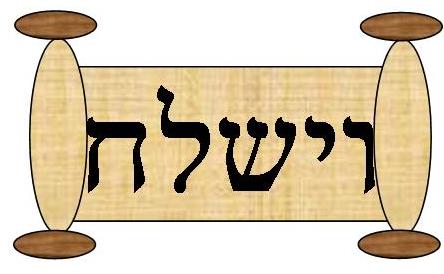
Dec 13, 2019 | Torat Devorah
The battle between Jacob and the angel, who is interpreted by the rabbis as referring to the “angel of Esav” has been a matter of debate and controversy among Jewish commentaries for centuries. This story is especially significant as it is seen as the prototype of the battle between the Jews and the forces of evil that seek to destroy us.within this story. Jacob seeks a blessing from this angel. Whether Jacob realized the angelic nature of this being is a matter of conjecture. Yet, Jacob, having grown up in the house of Isaac, clearly knew that this was no ordinary struggle. At the conclusion of the struggle, Jacob demands a blessing from this angel. Rabbi Adam Mintz comments: I believe that Jacob did learn a lesson from his earlier experience with Esav and that lesson was the fact that blessings are important and they are worth fighting for. The promise to Abraham was
transmitted through a blessing from God as was the guarantee that Isaac would continue the chain of Abraham. Jacob had received several blessings both from God and from his father. However, this blessing from the “angel of Esav” represents recognition on the part of the “opposition” that Jacob will struggle with opponents and he may be injured in the encounter but he will always survive. In many ways, it was the most valuable of all of Jacob’s blessings. The “angel of Esav” renames Jacob, Israel. The name Israel has two possible derivations. The Rashbam understands the root of the word to mean “to fight or to struggle”. Jacob gains his name because he has fought with God and with man. Rabbi Samson Raphael Hirsch, the champion of Orthodoxy in nineteenth century Germany, explains the root of the name from the word “sar” meaning to rule. Jacob was given his name because he had been victorious in his battle. Jacob’s name is changed as a result of the struggle with the “angle of Esav”. The commentaries dispute what aspect of the struggle should be emphasized; the battle or the victory. Was Jacob’s personality identified by his ability and willingness to fight for what he believed or was it the fact that he was able to survive against all odds. And, it is no accident that the name of the Jewish people is Israel reflecting this same question. In this episode in which names are so critical, it is noteworthy that when Jacob asks the angel for his name, the angel replies, “Why should you ask for my name and he blessed him.” The
passuk seems to be describing a relationship between lack of name and the ability to bless. Rabbi Hirsch
explains that names identify people but they also limit people. We are only one person living at one time in one place. The angel refuses to divulge his name in order to make the blessing to Jacob a universal one, one that would apply to Jacob and to his descendants for all times.
One of the strangest laws we have seems to be the prohibition against eating the area around the sciatic nerve in an animal. Rabbi Eli Popack questions: ‘Due to the fact that one of our ancestors had a hip dislocated 4,000 years ago, we need to forgo a good rump steak?’ The Rashbam, comments that. The story of Jacob and the angel occurred just prior to Jacob’s impending encounter with his estranged twin brother. Esau was coming with four hundred armed men, and Jacob was actually planning to escape from Esau. That was when the angel
attacked him. According to Rashbam, the reason for the angel wrestling with Jacob was so that he would be forced to stand his ground and not escape via a back route. Jacob was compelled to confront the enemy and overcome him. Only then would he witness the fulfillment of G-d’s promise to protect him from harm. It seems that Jacob developing a pattern of escaping. He ran from Beer-Sheva when Esau threatened to kill him. He ran from Laban in Charan. And now he was preparing to run from Esau yet again. Apparently, G-d wanted Jacob to learn that a philosophy of escaping is not the Jewish way. So the angel dislocated his hip, preventing him from running. Now Jacob had no choice but to fight. In the end, he defeated the angel and was blessed with the name “Israel,” for he fought with man and the divine and overcame. This is a lesson to us all. When we stop running away from our problems and face our fears we become transported from the level of Jacob who sought to
escape, to avoid confrontation to the level of Israel the “sar” or ruler as Rabbi Mintz writes – If we can overcome our urge to run when we are faced with a flight vs fight situation and engage our fears and master them, as
Jacob was forced to do we are then worthy of demanding a blessing, and the tale of the dislocated hip, is more than a story but a perpetual reminder of our ability to overcome.
Prepared by Devorah Abenhaim
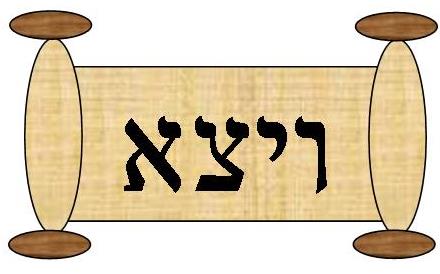
Dec 6, 2019 | Torat Devorah
And Jacob went out from Be’er Sheva, and he went to Charan (
Genesis 28:10)The story of Jacob’s journey to Charan is the story of every soul’s descent to the physical world. The Lubavitcher rebe explains: The soul, too, leaves behind the spiritual idyll of
Be’er Sheva (literally, “Well of the Seven” — a reference to the supernal source of the seven divine attributes or
sefirot from which the soul derives) and journeys to Charan (literally, “Wrath”): a place of lies, deceptions, struggle and hardship; a place in which material concerns consume one’s days and nights, sapping one’s energy, confusing one’s priorities, and all but obscuring the purpose for which one has come there in the first place. Yet it is in Charan, in the employ of Laban the Deceiver, not in the Holy Land and its “tents of learning,” that Jacob founds the nation of Israel. It is here that he marries and fathers eleven of the twelve sons who will become the twelve tribes of Israel. Had Jacob remained in the Holy Land, the life of this pious scholar who lived 3,500 years ago would have been of no significance to us today. The soul, too, achieves its enduring significance only upon its descent into “Charan.” Only as a physical being, invested within a physical body and inhabiting a physical environment, can it fulfill the purpose of its creation, which is to build “a
dwellingfor G-d in the physical world.”
And Jacob rose up early in the morning, and took the stone that he had put under his head (28:18) But earlier in it says, “And he took of the stones of the place, and put them under his head.” This tells us that all the stones gathered themselves together into one place and each one said: “Upon me shall this righteous man rest his head.” Thereupon all were merged into one (Talmud Chulin 91b).
“Jacob kissed Rachel, and he raised his voice and wept” (Genesis 29:11). Upon meeting his cousin, the young girl destined to be his life-mate, Jacob, a man in his upper seventies, kissed her. The shepherds around them were disgusted. Who does he think he is? He comes to our town to bring perversion. We have to do something about this. Jacob overheard their conversation and was upset. He kissed Rachel as an expression of love for his cousin, in a familial type of a way. He had no sensual thoughts, no lustful motives. If so, why did Jacob cry? He cried because he recognized that he had made a mistake. He hadn’t realized that the townsfolk were so base and so sensually oriented that they would take his innocent kiss as anything more than it was. (This explanation of the passage is based upon the commentary Da’as Sofrim by Rabbi Chaim D. Rabinowitz, a noted Torah scholar in Israel.)
We, the people of the Book, live life on a different plane. Although we have lived for centuries among the nations of the world, we remain, spiritually and intellectually, separate. It doesn’t even dawn on Jacob to look at Rachel in a lustful way, he was thinking in more elevated terms. He was thinking of family and of the future of the Jewish people. The townsfolk were not oriented the same way and their reaction was formed on the basis of their base assumptions.
Prepared by Devorah Abenhaim
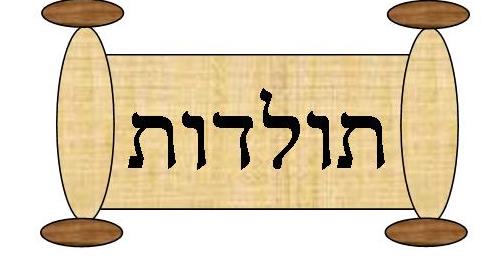
Nov 29, 2019 | Torat Devorah
Rebecca, Isaac’s wife, finally became pregnant after many years of being barren. With regard to her pregnancy, the Torah states that the children were struggling within her womb. She therefore prayed to God and said: “If so, why am I thus?” (Genesis 25:22), or in Hebrew – “Eem ken, lamah zeh anochee?” Hashem answers Rebecca in the following verse in the Torah and states: “Two nations are in your womb; two regimes from your insides shall be separated; the might shall pass from one regime to the other, and the elder shall serve the younger.” Although this verse has been explained by many, the Or Hachayyim believes that there is still no truly satisfactory answer. God responded to her fear that she would miscarry by explaining to her that there was nothing medically wrong in her womb but that she was carrying two instead of merely one fetus. Normally, when a mother expects twins, the two fetuses get along inside the womb. In Rebecca’s case, they did not. Hence, she experienced the feeling of being crushed. She did not merely carry twins, but each one was destined to become a nation with very different characteristics from one another. Not only would each one be a king in his own right, but these respective nations would endure for thousands of years. All of this would not contribute to her feeling of being crushed were it not for the fact that these twins did not conform to the usual patterns of twins. When God explained that “they will be totally separate already while still inside of you,” this meant that they would not only be separate inside of Rebecca, but their being separate would continue AFTER they were born. The Or Hachayyim continues to explain that an additional factor preventing the two peoples from dwelling together in harmony: each one will derive its strength from the defeat of the other. He cites a similar concept in a statement from Megillah 6 that the city of Tzor attained its true prominence only through the fall of Jerusalem. Seeing that each nation therefore anxiously awaits the downfall of the other, there is no hope that they will live together in brotherly harmony.
Prior to the Torah recording the birth of Jacob and Esau, it tells us that Rebecca “completed the days of her pregnancy” (25:24). Why would the Torah find it necessary to tell us this? Torat Moshe comments that in Berachot 5, it states that whereas in this case the nine-month pregnancy was completed, in the case of Tamar and her twins, it was not. Tamar’s twins were born after a pregnancy of six months and 3 days (Genesis 38:27). We need to understand why Rebecca who suffered such discomfort had to complete nine months of her pregnancy, whereas Tamar was spared almost one-third of her pregnancy. The Midrash tells us that if Rebecca had not exclaimed why am I alive, an exclamation of exasperation, she would have become the mother of all 12 tribes. The numerical value of the word ‘zeh’ in her exclamation is the basis for the interpretation. Also, in Rebecca’s case, the word for twins, ‘teomim’, is spelled defectively without the aleph, since one of her children would be wicked. In the case of Tamar, both of her sons were righteous. There, the word for twins is spelled normally. By allowing Rebecca to complete her pregnancy, each child became complete. Esau was COMPLETELY hairy, unlike humans, whereas Jacob was COMPLETELY devoid of any impurities which Esau was full of. Esau, being the firstborn, exited the womb together with the blood – depicting his future lifestyle. Jacob, on the other hand, was unhurried, and content to wait until Esau had left the womb.
Prepared by Devorah Abenhaim
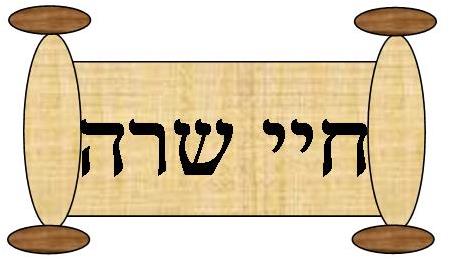
Nov 22, 2019 | Torat Devorah
The most difficult of the ten tests that were presented to Avraham by G’d was the Akeidah (the binding of Yitzchak). He was told by G’d to take his beloved son Yitzchak and bring him up as a “burnt offering.” Although G’d had previously promised Avraham that Yitzchak would be the future Patriarch, he did not question G’d’s command. He submitted to G’d’s Will without hesitation because his sole objective in life was only to do the Will of G’d. When G’d saw that Avraham was willing to slaughter his son he was told to withdraw his hand and not bring any degree of harm upon Yitzchak. A ram appeared to be used in the place of Yitzchak as sacrifice. As it states, “…Behold, a ram! –afterwards caught in the thicket by its horns.” Rabbi Yosef Kalatsky explains: It is because of Avraham’s unparalleled spiritual achievement at the Akeidah that the Jewish people are able to withstand the intense level of prosecution by satan that is in effect on Rosh Hashanah, the Day of Judgment. The Gemara in Tractate Rosh Hashanah tells us that when the ram’s horn (shoar) is sounded, satan is silenced. The merit of the Akeidah dispels every level of prosecution that is brought against the Jewish people until the end of time.
Sarah died in Tishrei, 2085 (Sept. 1677 b.c.e.) when she was 127 years old. She died in Chevron. The Akeidah was the cause of Sarah’s death. Sarah died immediately after the Akeidah; incidentally, it is by this fact the Akeidah is dated. This is what happened: Satan saw that he could get nowhere in his efforts to persuade Avraham and Yitzchak, since neither of them would pay attention to his words. He therefore disguised himself as an old man riding on a camel (Sifetei Cohen), and went to Sarah, who was waiting in Beer-sheva. He said to her, “Don’t you realize what has happened to you? Your husband took your precious son, built an altar, bound his hands and feet, and offered him as a human sacrifice. Yitzchak screamed and pleaded for mercy, but he had no pity.” Upon hearing this, Sarah cried out in a bitter voice, banging her head on the wall, so great was her misery. She wandered through the hill country toward Chevron, asking everyone she encountered if he had seen them. She sent her servants to the academy of Shem and ‘Ever and to other places, to see if they could find them. When Sarah arrived in Chevron, she sought out the three giants who lived there, Achiman, Sheshai and Talmai, and asked them if they had seen an old man together with three younger men. They replied, “We saw an old man and a younger man on one of the mountains. The young man was bound head and foot, and the old man had a knife in his hands. A cloud then covered the mountain and we could see no more.” Sarah was beside herself with grief. Suddenly ha-satan appeared again, in a different disguise. He asked why she was weeping so bitterly, and she told him what had happened. He said, “Don’t you believe that old man (referring to his previous disguise). He’s a known liar. I just saw Yitzchak alive and well.” When Sarah heard these words, she was so elated that she went into shock and died. (Rashi; Pirkei Rabbi Eliezer; Sefer HaYasher).
The Torah repeats, “[These were] the years of Sarah’s life.” These words appear to be redundant. The Torah is teaching us that Sarah was not meant to live longer than this. One should not think that she died only because of her shock at hearing ha-satan’s words. Actually, she had been destined to live this number of years and no more. G-d allows a tzaddik to live out his allotted time; He does not take away even a single day.The direct cause of her death, however, was the shock. (Yafeh Toar)
Prepared by Devorah Abenhaim

Nov 8, 2019 | Torat Devorah
In the middle of this week’s Torah reading, the Torah seems to make a detour into the backwaters of Canaanite political history. For an entire chapter of 25 verses the Torah describes a war between the four kings and the five kings. Ostensibly, these events have little to do with the story of Avraham and the genesis of the Jewish People.
However, in the book “A Historical Backwater” by Rabbi Eliezer Breitowitz (in the name of the Maharal of Prague as heard from Rabbi C.Z Senter), the four kings and the five kings represent two inimical world-views. The four kings represent a world-view where everything in creation is subsumed under the ‘forces of nature.’ This view holds that there is nothing else in this world except this world. Four always denotes ‘this-worldliness’. There are four points of the compass. We speak of the ‘four winds’. The world is composed of four ‘elements’: earth, wind, fire, and water. The letter dalet which has the numerical value of four consists of two lines at right angles to each other, suggesting the four points of the compass. You can look a this world as being no more than what can be contained within this world — within the four directions, the four winds, and the four elements. Or you can look deeper and higher and see that this world is focused on an Existence beyond this world. This is the world-view represented by the five kings.
Five in Hebrew is represented by the letter heh. If you look at the letter heh you will see that it is composed of the letter dalet (the letter which stands for four and all it signifies) plus the letter yud. Yud is a unique letter. It is the only letter that doesn’t touch the line on which you write. It is no more than the smallest of dots floating above the line. The letter heh is a pictogram of this world focused and revolving around that which is above this world — the dalet (the “four” of this world) with the yud at its axis.
Avraham fought on behalf of the five kings against the four kings. Avraham was the first person to look at this world and see that there was an Existence beyond that which is contained in this world. If there was a ‘manor’, there had to be a ‘Lord of the manor.’ After Avram fought the war against the four kings, G-d added a letter to his name. Not surprisingly, that letter was the letter heh. For Avraham represents all that the heh represents, that this world revolves around a Higher Existence. It was also after the war against the four kings that G-d made a covenant with Avraham, the covenant of Brit Mila. Brit Mila represents the sublimation of the physical to the metaphysical. It signifies that the human body is only complete when we dedicate it to its Maker.
Prepared by Devorah Abenhaim









